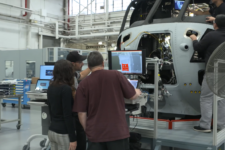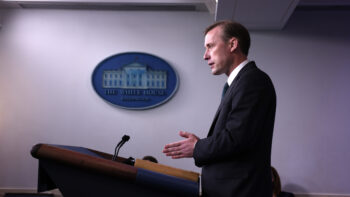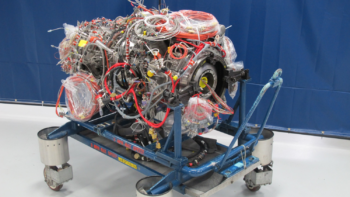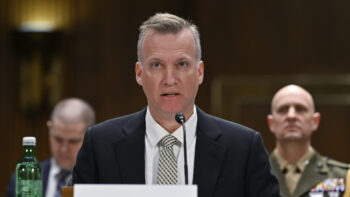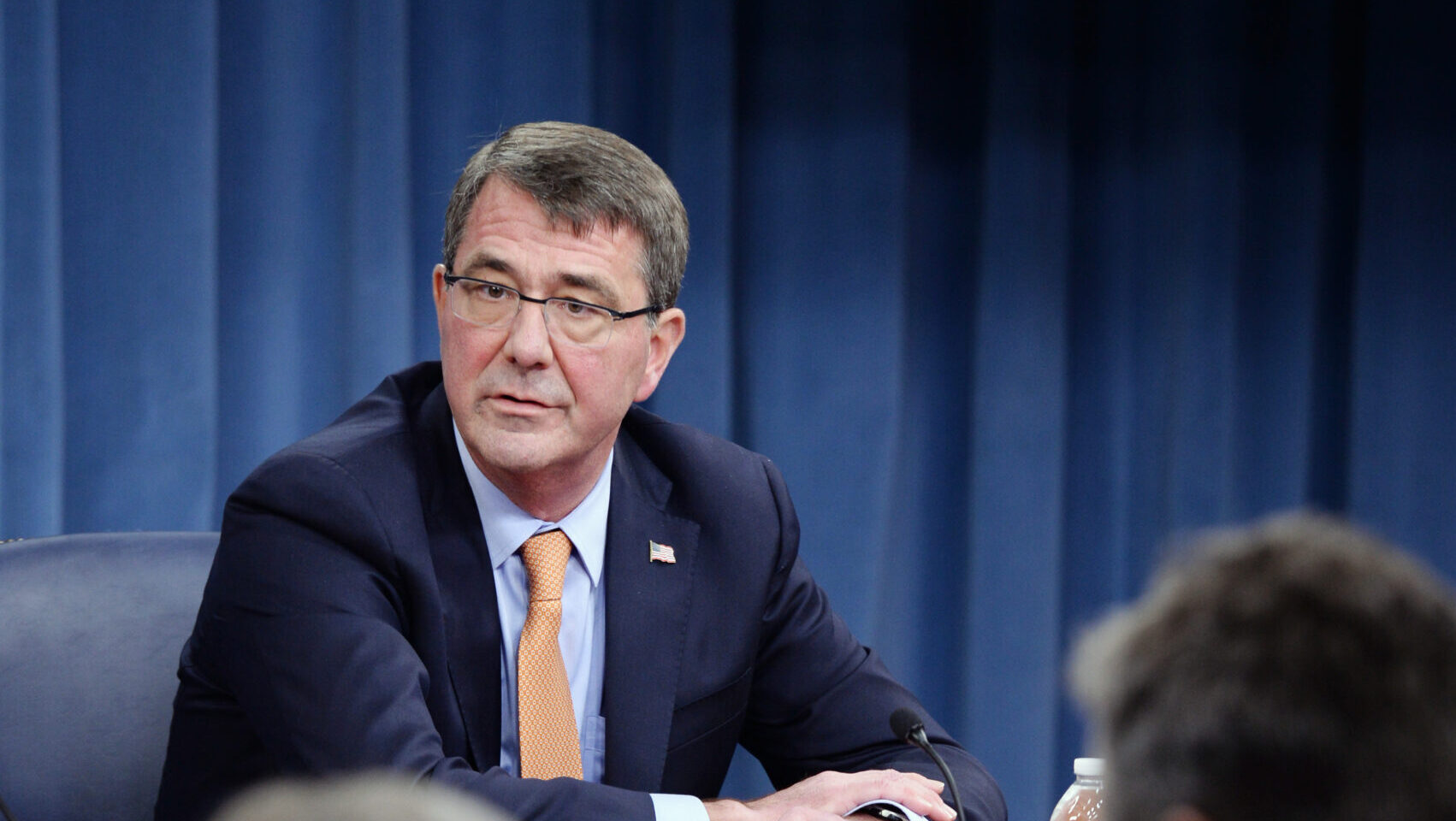
Secretary of Defense Ash Carter speaks at a press conference at the Pentagon, April 16, 2015. (DoD photo by Sgt. 1st Class Clydell Kinchen)
WASHINGTON — Former Secretary of Defense Ash Carter passed away Monday in Boston, according to his family. He was 68.
In a statement, the family reportedly said Carter died of a “sudden cardiac event.” Carter, originally from Philadelphia, served as the 25th secretary of defense, under President Barack Obama.
During his time as head of the Pentagon, Carter, a physicist by education, pushed the famously slow-moving institution to more quickly adopt cutting edge technology through initiatives like the Defense Digital Service, the Defense Innovation Unit Experimental (DIUx) and the Defense Innovation Advisory Board. Before the establishment of those organizations, the department had fewer avenues to reach into the world of commercial technology, particularly the world of Silicon Valley startups.
RELATED: DIU plots hypersonic test plane, hoping to circumvent wind tunnel backlog
In his speeches, he frequently charged the defense establishment to “think outside the five-sided box” — meaning, beyond the Pentagon’s typical roster of defense contractors and ways of doing business.
“Now, technical innovation and investment is necessary, but not sufficient — we have to pursue innovative practices and organizational structures, also,” Carter told a Defense One summit in 2016. “The world we live in demands it. While the Cold War arms race was characterized by strength, with the leader simply having more, bigger, or better weapons, today’s era of technological competition is characterized by the additional variables of speed and agility, such that leading the race now depends on who can out-innovate faster than anyone else. It’s no longer just a matter of what we buy. What also matters, it matters a lot, is how we buy things, how quickly we buy them, whom we buy them from, and how quickly and creatively we’re able to use them in different and innovative ways, all this to stay ahead of future threats.”
RELATED: Will Carter’s DIUx innovation unit survive Trump?
Outside of the technical arena, Carter’s time as secretary was also notable in that he opened all military combat positions to women and ended the ban on transgender troops serving openly.
Carter served in the Pentagon in a number of positions for years before his appointment to secretary, including a stint as undersecretary for acquisition, technology and logistics “with responsibility for DoD’s procurement reform and innovation agenda.”
Modernizing our supply chain is a national security imperative
Closing supply chain gaps in innovating technology will reposition the industrial base to be a strategic source of value.
